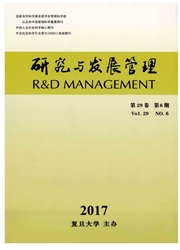

 中文摘要:
中文摘要:
产学研合作创新成本的分摊和合作收益的分配问题是合作关系能否保持稳定的关键所在.通过对产学研合作进行博弈分析可以看到,企业方通过技术创新成本补贴方式可以刺激学研方技术创新;在合作博弈的形式下,技术创新规模和技术创新的整体收益都比非合作博弈情况下要高;运用Rubinstein的讨价还价模型可以对合作创新带来的剩余价值进行再次分配.用算例对该问题进行了验证.
 英文摘要:
英文摘要:
Cost and profit allocation is the key to keep stabilization of enterprise-university-research (EUR) cooperation. Based on the game analysis on EUR cooperation, it concludes that the subsidy made by enterprises to technology innovation cost may stimulate the universities and research institutes to invest more in innovation. The scale and total profit of technology innovation in the cooperative game condition are higher than those in non-cooperative game condition. The surplus value in cooperative game condition could be reallocated with Rubinstein bargaining model. Finally, a case is used to prove these conclusions.
 同期刊论文项目
同期刊论文项目
 同项目期刊论文
同项目期刊论文
 期刊信息
期刊信息
